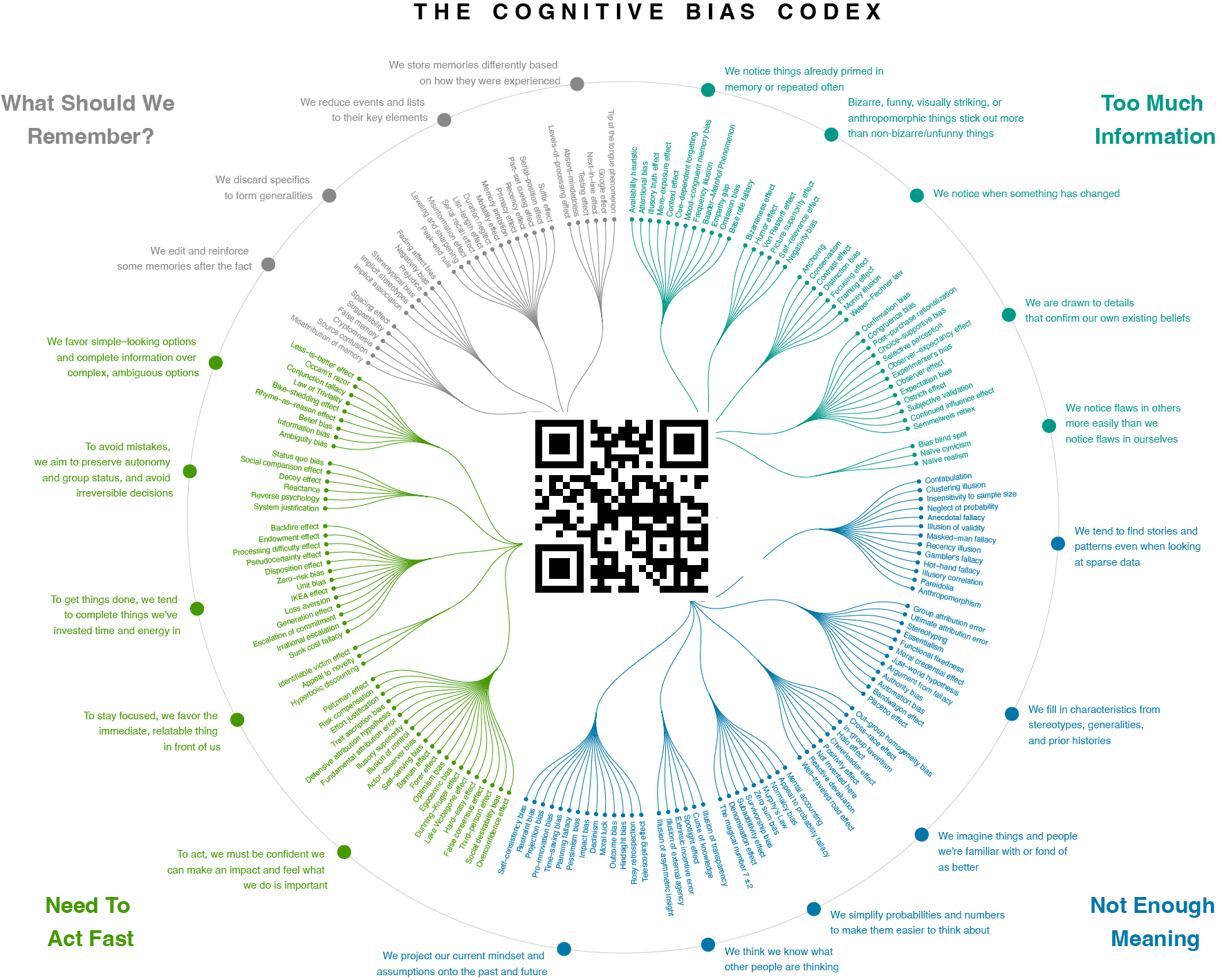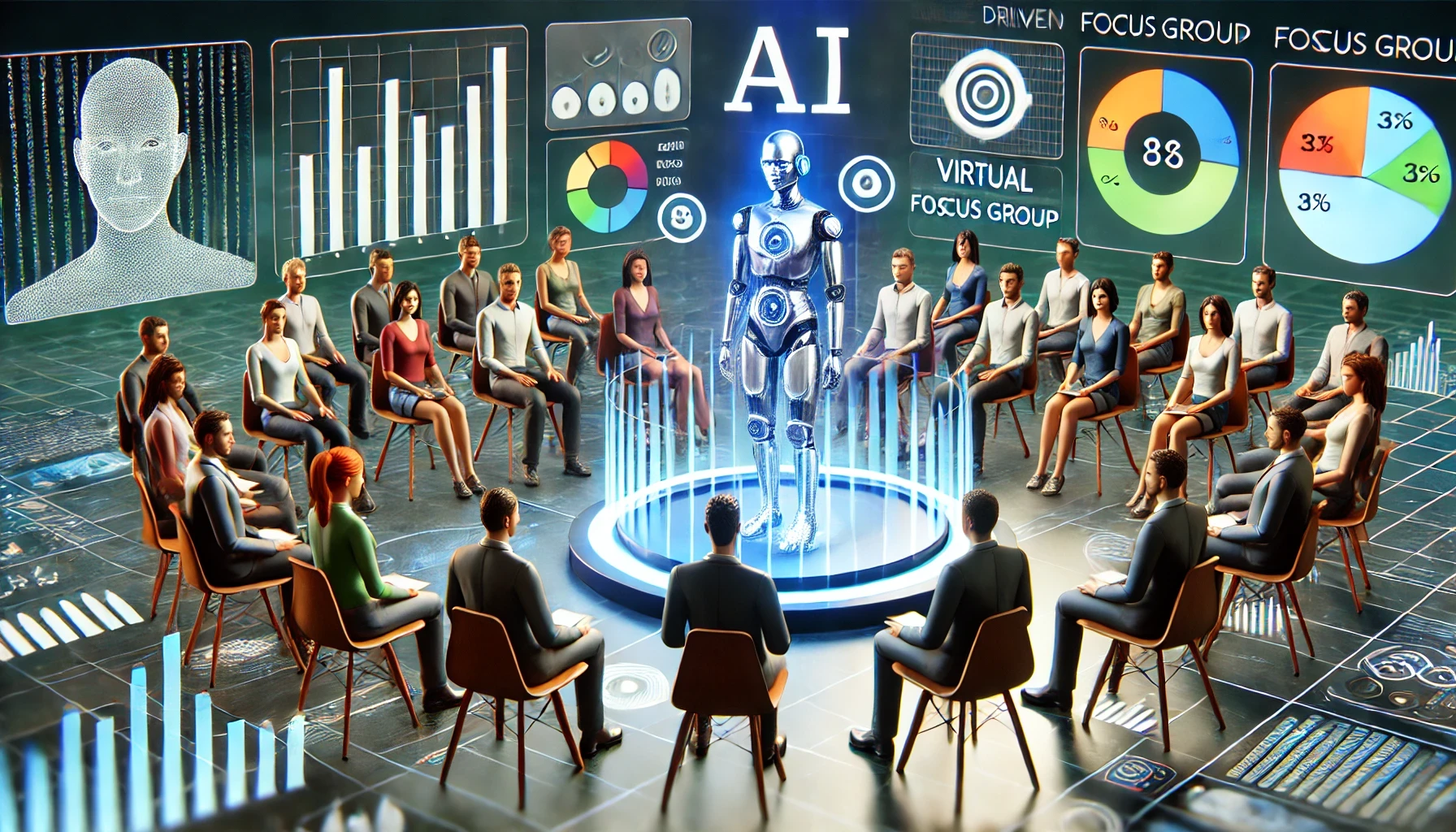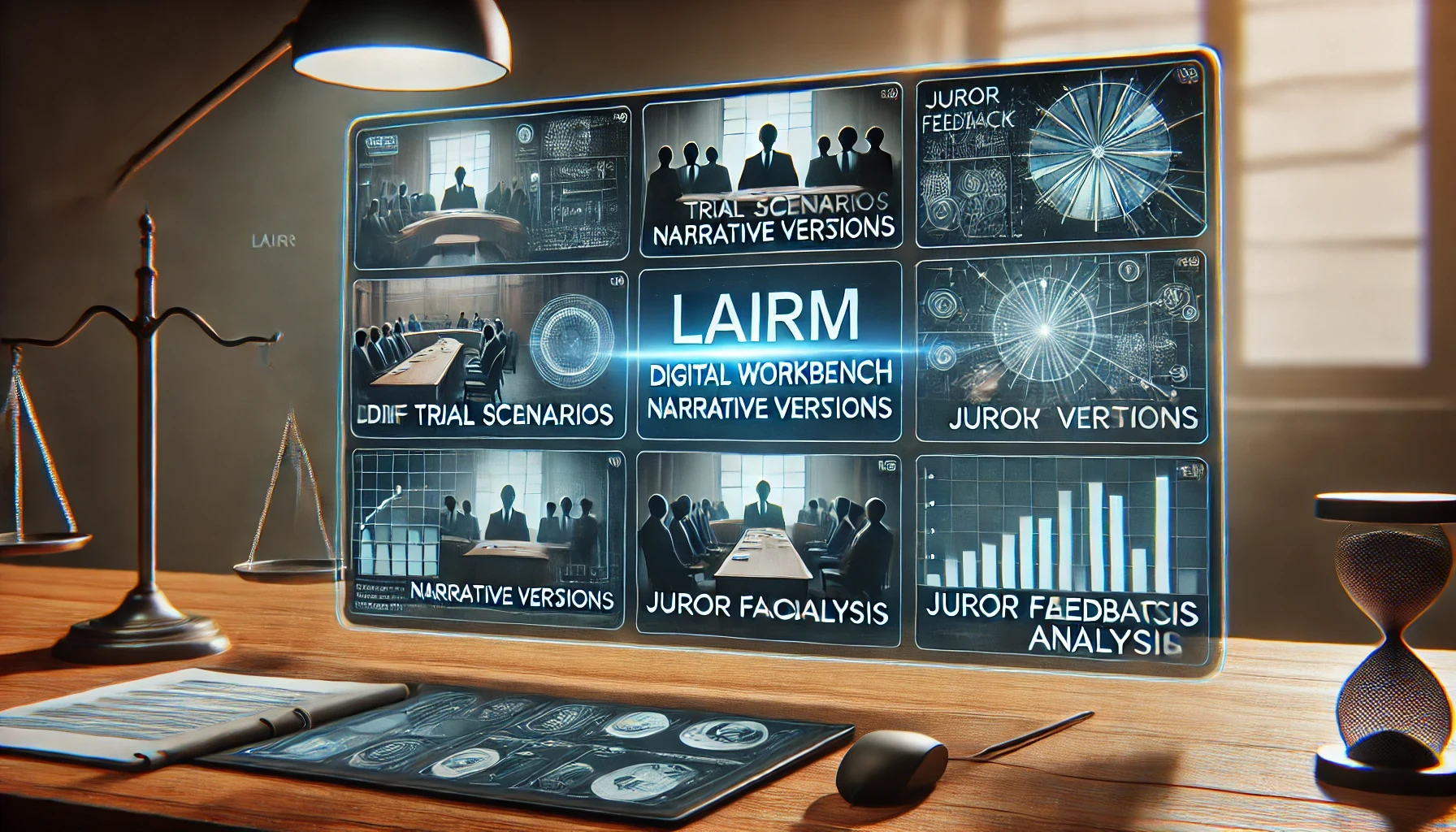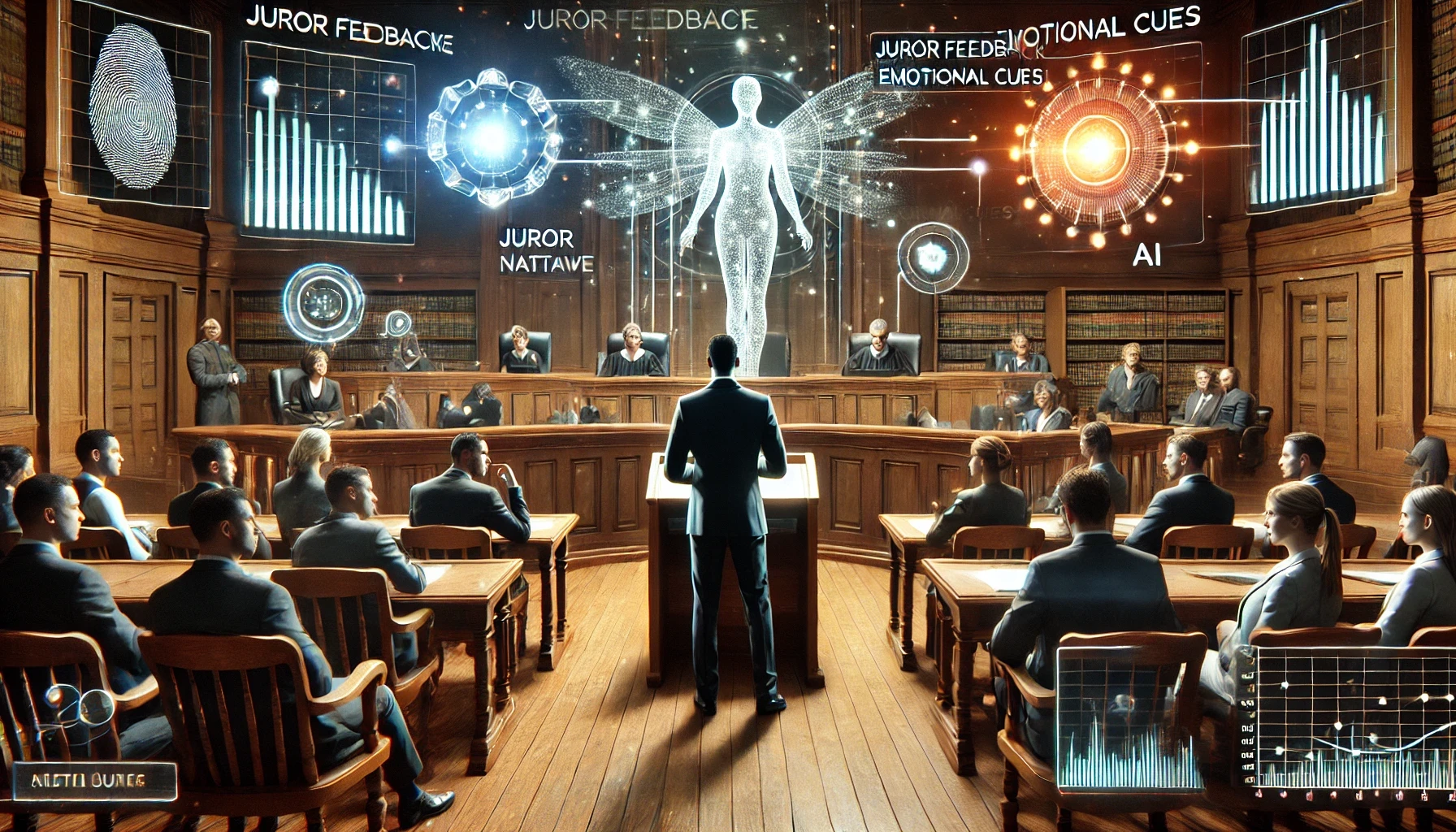Generative AI Is the Secret Weapon for Jury Selection—Here’s How It Works
Nov 5, 2024

Trial lawyers understand that jury composition can make or break a trial. Take the O.J. Simpson trial, for example—the jury's makeup was a key factor in the outcome. A fair and impartial jury is crucial to ensure a defendant gets a fair trial, but the reality is that human beings bring their own biases, like confirmation bias, into the jury box. No matter how responsible jurors try to be, they are still prone to unconscious biases that can shape how they interpret evidence and make decisions.
Understanding Confirmation Bias in Jury Selection
Confirmation bias is the tendency to seek out, interpret, and remember information that supports pre-existing beliefs while ignoring anything that contradicts them. Think of trying to convince a friend who’s a die-hard fan of a sports team that their team isn’t the best. No matter how many statistics or facts you present, they’ll focus on the evidence that supports their belief. This bias can impact jury selection, making it difficult for attorneys to build an impartial jury. Even with evidence-based strategies, confirmation bias can cloud judgment, affecting the fairness of a trial.

The Impact of Confirmation Bias on Trial Outcomes
Confirmation bias doesn’t just affect individual jurors; it can influence the entire jury during deliberation. Jurors are likely to focus on arguments that confirm their beliefs and ignore conflicting information, leading to group polarization—where jurors’ biases become even more extreme. This can have a major impact on the final verdict.
Pre-trial publicity and media coverage also play a role. Sensationalized news or biased portrayals of defendants can shape jurors' opinions before they even step into the courtroom. These impressions, however passively acquired, influence how jurors interpret trial evidence, making it challenging to maintain objectivity.
Introducing AI Solutions for Jury Selection
How can trial lawyers overcome confirmation bias and ensure a fair trial? The answer lies in artificial intelligence (AI). Generative AI, powered by technologies like SyntheticJuror, is transforming how trial lawyers approach jury selection. As one attorney put it, "Generative AI gave us insights that were impossible to get through traditional methods alone." Although SyntheticJuror might not be in the spotlight, it’s the tech that makes a transformative impact behind the scenes.
Generative AI helps trial lawyers analyze potential jurors thoroughly by providing insights based on demographic, psychographic, and behavioral data. Using advanced data analytics, it predicts how different juror profiles might react to specific evidence, allowing attorneys to build a balanced, representative jury. By leveraging this technology, lawyers avoid relying solely on gut feelings or intuition, resulting in a more effective and fair selection process.
How Generative AI Counteracts Confirmation Bias
Data-Driven Jury Analysis: Generative AI helps attorneys evaluate potential jurors with an objective, data-driven approach. In one recent trial, Generative AI flagged a juror who seemed impartial but had a hidden bias revealed through their social media activity. SyntheticJuror’s capabilities help lawyers look beyond stereotypes or gut feelings and base their decisions on reliable data. This makes it easier to identify individuals with strong biases, leading to a more impartial jury.
Uncovering Hidden Biases: AI can also uncover hidden biases that may not be obvious. Generative AI algorithms analyze responses to juror questionnaires, social media profiles, and other public information to identify red flags for biases like confirmation bias. This enables trial lawyers to ask targeted questions during voir dire, addressing these biases directly.
Simulated Jury Reactions: SyntheticJuror allows trial teams to simulate jury reactions to evidence and arguments. In one mock trial, a simulated jury highlighted that a key piece of evidence wasn’t resonating as expected. This gave the team time to adjust their approach and present the evidence more effectively. By understanding how different jurors perceive key aspects of the case, attorneys can minimize the impact of biases and make their arguments more compelling.

Improving Trial Outcomes with Generative AI
Generative AI is already making a difference in trial preparation, helping attorneys understand jury biases early on and build stronger cases. One trial consultant said, "It was like having a window into the jurors' minds. The data revealed what we could never have figured out on our own. For example, we learned that a particular piece of evidence evoked a strong emotional response, which helped us refine our approach." With real-time AI feedback, SyntheticJuror’s technology leads to better trial outcomes, increased awards, and reduced preparation time.
Leveraging Behavioral Science and AI for Jury Selection
The best approach to jury selection combines behavioral science expertise with AI. In a recent case, behavioral scientists worked with AI to identify jurors whose biases could negatively impact the trial. By using predictive modeling and data analysis, they developed targeted voir dire questions that revealed hidden biases, allowing them to screen or dismiss those jurors effectively. Generative AI, backed by SyntheticJuror, gives trial lawyers insights based on behavioral patterns and predictive modeling, which helps create a fairer selection process. Data-driven voir dire questions lead to more effective screening for potential biases, ensuring a more equitable trial.

Future Directions: AI and Legal Training
Generative AI isn’t just a tool for jury selection—it’s also an educational resource for the legal community. Picture a young attorney using an AI-powered training tool to practice voir dire. The AI simulates different juror types and provides real-time feedback on the attorney's questions and approach. By integrating AI into legal training, trial lawyers can better understand biases and cognitive shortcuts, improving their jury selection and trial advocacy skills. AI tools can engage with legal professionals, providing valuable feedback and helping them avoid common pitfalls of intuitive judgment.
Conclusion
Confirmation bias poses a significant challenge within the legal system, influencing jury selection and trial outcomes. Leveraging AI technologies like Generative AI and SyntheticJuror can help attorneys overcome these biases, leading to fairer and more objective trials. As AI continues to evolve, trial lawyers who embrace these tools will be in a better position to create balanced juries and present stronger, more compelling cases. The future of jury selection is data-driven, and those who adapt will lead the way in transforming the justice system for the better.
#Litigation #TrialPreparation #GenerativeAI #LegalTech #JurySelection #SyntheticJuror #AI #FutureOfLaw

